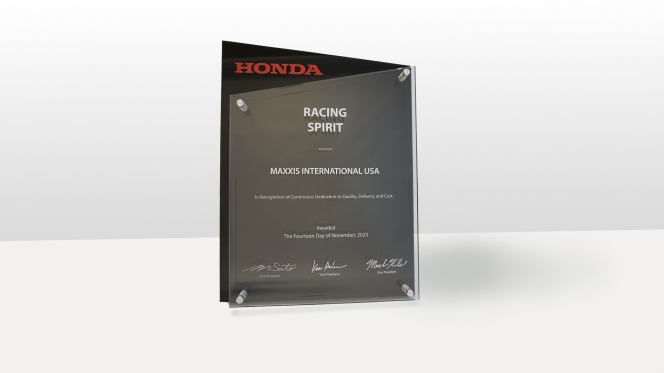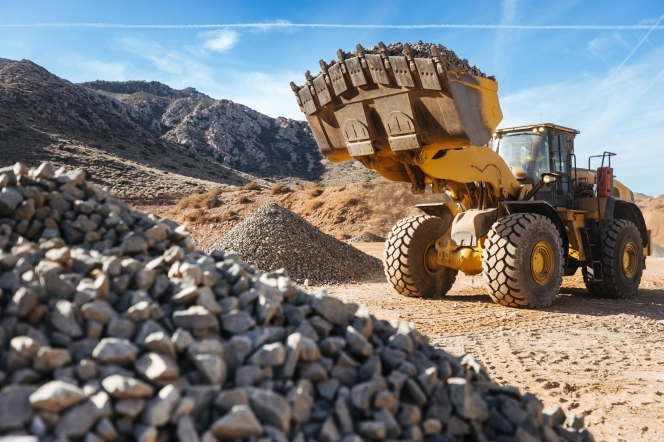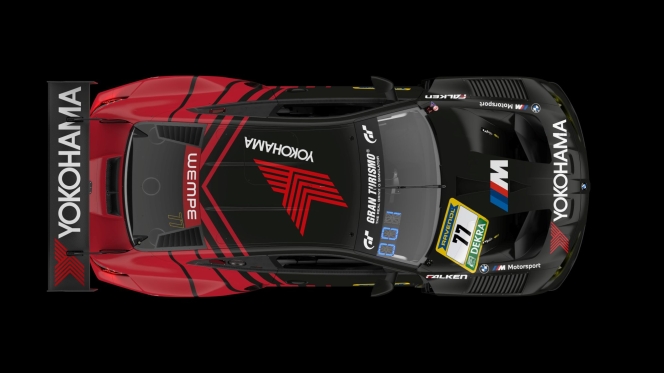Last year, Oxford Dictionaries declared that “Unprecedented” is the word of year that chosen by the famous English language experts to sum up the preceding 12 months. It’s been more than a year since the pandemic changed the way we live and work, and nothing feels more important than staying connected to our communities. Tyre industry is no exception.
As we all know, the automotive society is changing at rapid pace world-wide due to various factors such as new customer trends, growth of middle class and new mobility concepts. The performance requirements of tyres continue to rise ever higher, meaning that even further advancement in tyre technology as well as fighting with complex issues are now our new normal. The requirements of tyre performance parameters are much greater than past therefore now we work with “octagon,” instead of historically used “triangle.”
Today, we are talking about “Desired performance” instead of “Prioritised performance” which covers all required factors as well as sustainable green product concept. As we all know, many tyre manufacturers have announced their aggressive plans to have “carbon-neutral” products and aimed to adopt renewable materials and sustainable solutions.
As noted earlier, there are also additional challenges facing mobility and there are many new topics. In this article as TIC, we focused some of the hot topics to be involved by tyre companies. The below topics will force fundamental changes and our industry is going to be more complex. We need to understand those which would affect market dynamics, breakthrough developments and mobility revolutions.
We believe that a holistic approach is needed to see the future as well as new opportunities and treats. TIC-Tire Industry Consulting’s recommendations are given for some of the important areas, which should be involved by tyre manufacturers in order to continue their business.
Air-Free tyres
The airless concept tyre is one of the initiatives aimed towards many tyre manufacture’s long-term vision of the use of sustainable materials. Many of tyre manufacturers revealed their second or third generation air free technologies by featuring improved load-bearing capabilities, driving performance and environmental design. However, there are a lot of works to be made before air free tyres available for customers. Anyone looking for the future of tyre industry needs to involve Air Free tyre technology. Although it is very hard to estimate, we believe CAGR would be reached 3-4% within ten years globally.
Sustainable solutions
This is one of the most popular topics for automotive industry since many years by aiming CO2 emission reduction. The motivations are: increasing pressure from legislation to move to zero CO2, EV sales booming in many countries and consumers are increasingly seeking to buy from environmentally responsible companies. Main players have announced very challenging targets to use all-sustainable materials by 2030 and 2050. Tyre industry has to follow this path and needs to do fundamental changes regarding all processes such as R&D, supply chain and others. We believe that tyre industry should implement multiple technological innovations for sustainable solutions by working with their suppliers. In order to keep the competition, tyre manufacturers should: have a Science Based Target (SBT) for sustainability, engage with suppliers for joint activities and improve R&D activities regarding new materials, new designs and higher the usage of recycled materials.
EV tyres
Global automotive sector is responsible for 15% of global GHG emission and Paris agreement targeted to have “zero” GHG emission by 2050 to limit global warming. This is a very challenging target ever seen that committed by all countries. Private sector is co-responsible for implementation and rapid fleet electrification is one of the on-going solution items. OEMs have set the pace for CO2 reduction and tyre manufacturers should have the EV tyre that meets “desired performance” as a sustainable green product.

The best example would be Germany , that aims to have 14M electric cars in 2030 by having almost 30% share of total car and electric passenger car new sales would reach to 75-80% of total cars sale in 2030. Those figures show how big opportunity is exist for EV tyre manufacturers for OE and replacement markets. In that respect, we should continue to improve New Product Development (NPD) process even harder by expanding R&D efforts.
Artificial Intelligence
One of the important breakthrough innovations is AI and now widely use in all industries. We have seen many new applications by using AI in tyre industry too. Some of the areas would be sensor adoptions, prediction of compound physical properties, data mining in production processes and performance predictions during service time such a wear life and others. As TIC, we see AI as a “white space” for tyre manufactures that needs special skills as well as knowledge to adapt AI to existing systems.
 Dynamic Testing
Dynamic Testing
This has been performed by many tyre manufacturers using different test methodologies such as component level, Hil (Hardware-in-the-Loop), ViL (Vehicle-in-the-Loop) test during the development and test & verification states of the product. In addition to those currently available test technologies, there are new developments in testing, such as dynamic driving simulators, in other words DiL (Driver-in-the-Loop). This technology enables tyre manufacturer to test and verify their next-generation tyre designs in virtual environment using the vehicle digital twin, which replicates the actual vehicle including vehicle driving dynamics, with real driver interaction. The DiL will improve the development process and create new opportunities for tyre manufacturers as preferred one. TIC believes in “Speed to market with right solutions and innovation,” and ready to support you. Design & development process duration is getting more and more crucial and all manufacturers are trying to reduce it by using modern simulation and testing technics. We recommend adopting Virtual technology in order to provide the best service to your customers.
As a conclusion, tyre industry is facing a lot of challenges and having very dynamic competition, in that respect the tyre technology and tyre knowledge will be extremely important to compete in the future, more than at any time in the past.
TIC Subject Matter Experts (SMEs) have vast hands-on experiences for above topics and ready to support your activities. We provide specialised technical solutions for challenges and TIC guarantees a high standard of professional-ethical principles that we have kept and developed for years. (TT)
Maxxis Receives 2025 Racing Spirit Award From Honda
- By TT News
- March 04, 2026

American Honda Motor Company has honoured Maxxis with its 2025 Racing Spirit Award, recognising the tyre manufacturer's exceptional performance as a supplier. This accolade acknowledges Maxxis’ consistent ability to meet Honda’s stringent requirements regarding product quality, punctual delivery and cost efficiency.
The two companies have maintained a strong partnership since 2005, when Maxxis first began supplying original equipment tyres for Honda’s powersports division. Today, Maxxis tyres are fitted to popular Honda models such as the FourTrax Foreman Rubicon 4x4 and the Pioneer SxS. Expressing his gratitude, Andy Lee, President of Maxxis International – USA, conveyed that the entire organisation feels deeply honoured by the recognition. He attributed the achievement to the dedicated efforts of Maxxis employees, whose daily commitment ensures excellent products and service for their long-standing partner. Lee also reaffirmed the company’s dedication to upholding Honda’s expectations in the years ahead.
Lee said, “I know I speak for everyone at Maxxis when I say that we are truly honoured and delighted to receive this award. I’m also proud of the Maxxis employees who work hard every day to deliver excellent equipment and service to our OE partner of more than 20 years. We thank Honda and look forward to continuing to meet their expectations in 2026 and beyond.”
Michelin Introduces XHA3 Earthmover Tyre At ConExpo 2026
- By TT News
- March 04, 2026

Michelin North America, Inc. has launched the Michelin XHA3 tyre at ConExpo 2026. The product is the next generation in the company’s loader and grader range, succeeding the XHA2 model.
The XHA3 replaces several previous lines, including the XHA2, XADN+, XAD65 and XLD. According to the company, this launch represents its most significant innovation in the earthmoving segment in over a decade.
The new tyre has been engineered to meet the requirements of modern construction machinery, which now operate with higher loads and longer duty cycles. The XHA3 features increased load capacity and improved tonne-kilometre-per-hour (TKPH) performance compared to its predecessor.
It is built to carry heavier loads for modern earthmoving equipment. A new tread pattern engineered for durability and traction in loader and grader applications. It is designed to increase TKPH performance and extend tyre life. Aimed at reducing the total cost of ownership for fleet operators.
Yahn Heurlin, VP of Marketing, Michelin North America, said, “With the Michelin XHA3 tire, we’re building on a heritage our customers trust while delivering the next level of performance they demand. Construction equipment continues to evolve with higher loads, longer duty cycles and greater productivity expectations. The XHA3 tire, is designed to help fleets unlock more ton-per-hour performance, carry heavier loads with confidence and extend tire life, all while reducing total cost of ownership.”
Michelin Becomes Official Partner Of Rocket League Championship Series 2026
- By TT News
- March 03, 2026

Michelin has announced a strategic collaboration with BLAST, the organiser behind the 2026 Rocket League Championship Series (RLCS), which serves as the premier global tournament for the popular video game Rocket League. Through this agreement, Michelin becomes an official partner of one of the most energetic and widely viewed eSports properties on the international stage.
Rocket League itself enjoys immense global popularity, attracting several million active participants on a monthly basis. The RLCS season consistently draws tens of millions of views across the world, underscoring its significant reach. This move allows Michelin to deepen its involvement in the competitive gaming sector by associating with a high-profile series known for its passionate following.
The game’s core dynamic involves vehicles competing in a fast-paced arena where precision, control and rapid execution are paramount. These very attributes closely align with Michelin’s established heritage in mobility solutions and high-performance engineering, particularly its extensive background in motorsport. The partnership therefore represents a natural extension of the brand’s core principles into a digital environment.
By entering the world of the RLCS, Michelin seeks to enhance its connection with younger demographics and solidify its relevance within the digital spaces that are increasingly defining future trends and cultural habits. This initiative builds on a foundation of over 25 years during which Michelin has cultivated partnerships within the gaming and automotive simulation spheres, consistently applying its technological know-how to support both realism and superior performance in virtual driving experiences.
- Yokohama Rubber
- Yokohama ADVAN Tyres
- Nürburgring 24-Hour Race
- Nürburgring Langstrecken-Serie
- BMW M Motorsport
Yokohama Becomes BMW M Motorsport’s Official Tyre Partner For 2026 Nürburgring Events
- By TT News
- March 03, 2026

The Yokohama Rubber Co., Ltd., has entered into a new agreement to serve as the official tyre supplier for BMW M Motorsport, the division responsible for the brand's global racing endeavours. This collaboration will debut at the prestigious Nürburgring 24-Hour Race and throughout the Nürburgring Langstrecken-Serie in 2026.
This renewed partnership revives a historical connection between the two companies, who previously worked together on the same iconic circuit from 1980 to 1990. During that initial decade-long stint, their combined efforts secured two overall victories. After an interval of nearly four decades, they are reuniting for the current season to compete in the premier SP9 class, fielding the BMW M4 GT3 EVO. For this campaign, Yokohama will equip the vehicle with its high-performance ADVAN racing tyres, with the shared objective of capturing another overall win.

Beyond its tie-up with the BMW team, Yokohama Rubber continues its longstanding commitment to the Nürburgring. It will provide its tyres to numerous leading teams contesting both the endurance series and the 24-hour event this season. The company is focused on achieving an overall championship victory for a vehicle equipped with its YOKOHAMA brand tyres.
Franciscus Van Meel, CEO, BMW M GmbH, said, “We are excited to welcome YOKOHAMA as Official Partner of BMW M Motorsport for our Nürburgring programme. YOKOHAMA’s technical expertise and motorsport passion strengthen our drive for maximum performance and precision. Their support allows our team to focus fully on what defines BMW M Motorsport: pushing the limits on every lap. We look forward to a strong endurance season.”
Team: Schubert Motorsport
Class: SP9
Car: BMW M4 GT3 EVO
Tyres:
ADVAN A005 (for dry conditions); Sizes: front 300/680R18, rear 330/710R18
ADVAN A006 (for wet conditions); Sizes: front 300/680R18, rear 320/710R18
Race Schedule (as of date of this release)
March 14 (Sat): NLS Round 1
March 21 (Sat): NLS Round 2
April 11 (Sat): NLS Round 3
April 18 (Sat) –19 (Sun): Nürburgring 24-Hour Race (Qualifiers) , NLS Rounds 4 & 5
May 14 (Thu) –17 (Sun): Nürburgring 24-Hour Race
June 20 (Sat): NLS Round 6
August 1 (Sat): NLS Round 7
September 12 (Sat) –13 (Sun): NLS Rounds 8 & 9
October 10 (Sat): NLS Round 10







Comments (0)
ADD COMMENT